U5- Political Participation- AP Gov + Politics
1/56
Earn XP
Description and Tags
Name | Mastery | Learn | Test | Matching | Spaced | Call with Kai |
|---|
No analytics yet
Send a link to your students to track their progress
57 Terms
Party Coalition
group of voters that consistently support the platform.
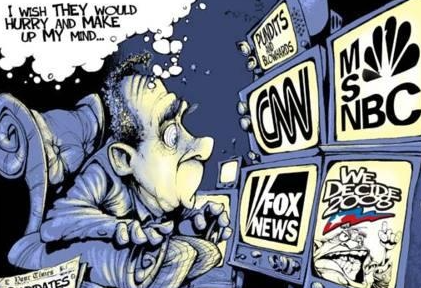
Linkage Institutions
connect individuals with the government
ex: media, interest groups, social movements, cable/local TV, social media, and more
Realignment
major shift in political allegiance
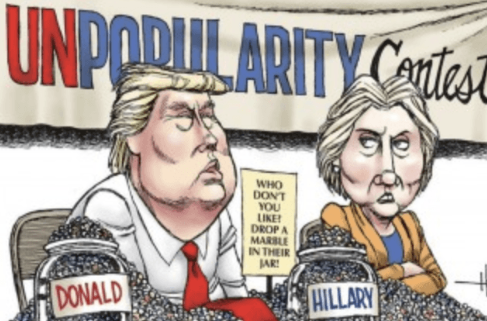
Dealignment
detachment from a political party → more likely to become independent.
increase in split-ticket
decline in party loyalty
Party Identification
degree in which voters are connected to a political party [parties influence voting chocies]
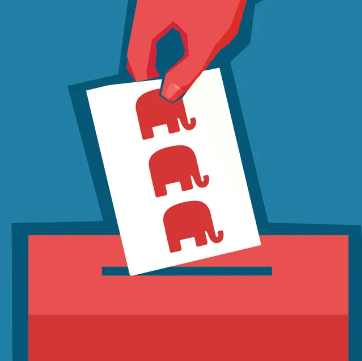
Straight-Ticket Voting
voting for candidates on the ballot from one party.
Split-Ticket Voting
voting for candidates from different parties in the same election.
Open Primary
where all eligible voters can vote
Closed Primary
where only voters with an established political party can vote
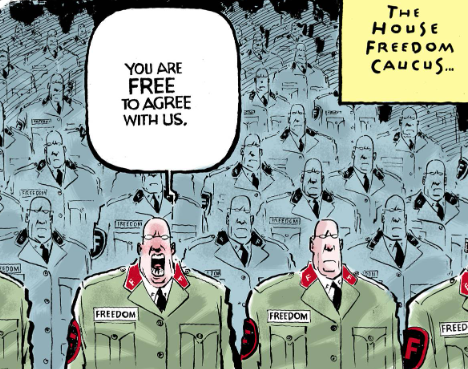
Caucus
meeting or gathering of members of a political party or organization
Superdelegates
Their role is to provide a balance of power and ensure that the party's nominee is electable and representative of the party's interests.
Retrospective Voting
voting based on past actions and behaviors.
Prospective Voting
voting based on future policies and politics.
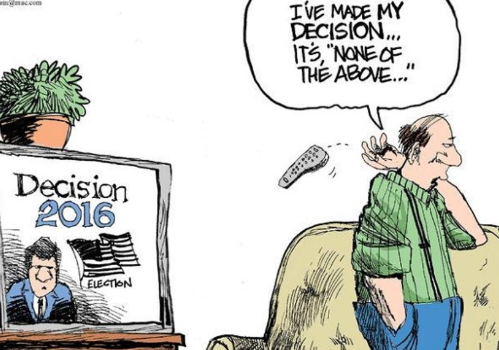
Rational-Choice Voting
voting based on a citizen’s best interest
Party-line Voting
voting for one political party across all offices on a ballot
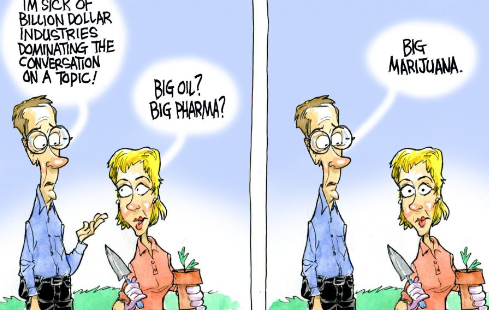
Interest groups
Voluntary associations of people with a goal to get favored policies enacted [social change].
Build grassroots support, lobby + electioneer, and donate through PACs.
Public interest: labor unions, consumer rights, human rights… [these seek collective good]
Single Issue: abortion, gun control, taxation… [these ppl tend not to compromise]
Iron Triangle
Combination between Congress, Interest groups, and the Bureaucracy
Interest groups → help Congress [information for bills] → bureaucracy [depends on congressional funding to operate policies]
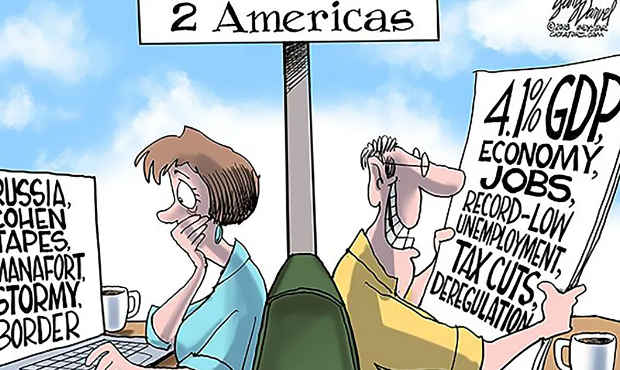
Issue Networks
relationships and interactions among various actors, such as interest groups, government agencies, and policy experts, who collaborate to address specific policy issues.
Political Action Committes [PACs]
continuity from watergate scandal → Federal Election Campaign Act [‘74]
organizations that raise money solely to elect and defeat candidates
![<p>Federal Election Campaign Act [‘71 → ‘74]</p>](https://knowt-user-attachments.s3.amazonaws.com/a46f95e7-346c-42d8-bf7d-b4c78686aa36.jpeg)
Federal Election Campaign Act [‘71 → ‘74]
required candidates to identify financial contributors
limits on individuals + interest groups (PACs)
led to the Federal Election Commission
Federal Election Commission
regulates campaign provisions (funding, spending..)
prohibits direct contributions to campaigns
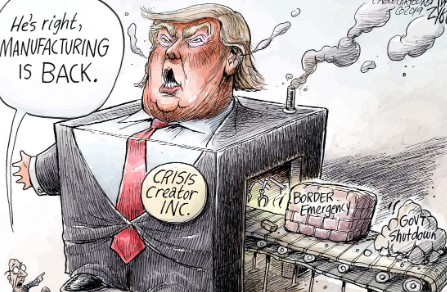
‘Electioneering’
group involvement in electoral processes to advertise a candidate or ideology.
Policy Agenda
the set of issues that policymakers attend to
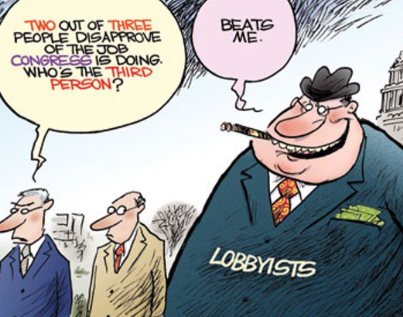
Lobbying
interacting with the govt. to advance a group’s goals
revolving-door: when people move between positions in govt. to lobbying positions
Theory of a Participatory Govt.
belief that citizens affect policy-making through civil involvement
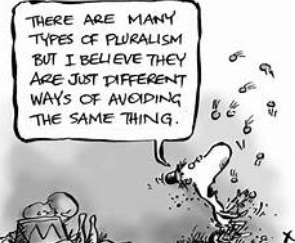
Pluralist Theory
belief that distribution of political power among many groups → creates checks + balances
Elitist Theory
belief that the wealthy hold a disproportionate amount of power
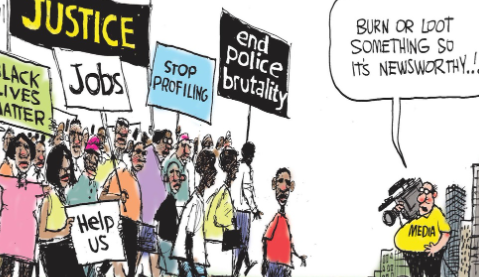
Social Movements
Loosely organized groups that educate the public + pressure policymakers
Free Riders + Collective Good
Free rider: everyone benefits from the collective goods + advantages gained by a union/group [collective good: public benefit]
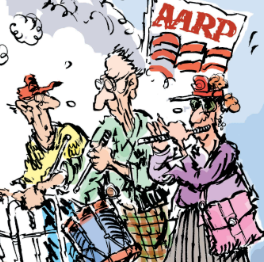
Selective benefits
barrier to the free rider problem
only availiable to those who join (ex: AARP)
Goals of Political Parties
recruit + shape candidates, run campaigns, and mobilize + educate voters
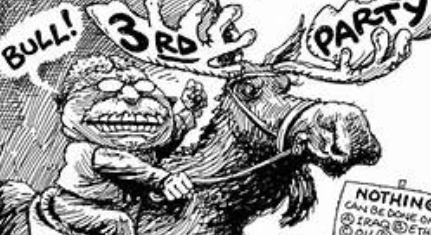
Influence of Third Parties
draw people who are dealigned, pressure major parties, and get issues on the table.
Barriers for Third Parties
plurality voting [low margins], winner-take-all electorate, and campaign financing + funding.
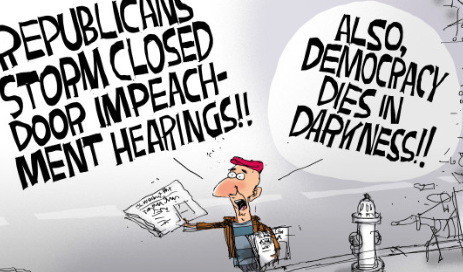
Presidential v Congressional Elections
presidential: strong messages + large organtizations
congressional: advantage of ‘sophomore surge’ [incumbent] → engenders gerrymandering + possible malapportionment
Gerrymandering
Manipulation of district lines to favor a political party.
census helps to decide # of representatives in a congressional district
lines are drawn by state legislatures
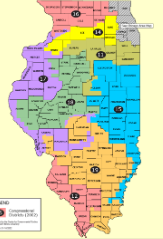
Malapportionment
deliberate rearrangement of districts to impact elections and representation → dilutes votes
ex: amount of large states v small states to win the electoral college or changes in rural/urban areas → affects representation → Baker v Carr [‘72]
Voting Rights [Provisions]
removal of poll taxes, grandfather clauses, literacy tests → VRA 1965
15th → black men could vote
18th → lowered from 21 to 18
19th → women could vote
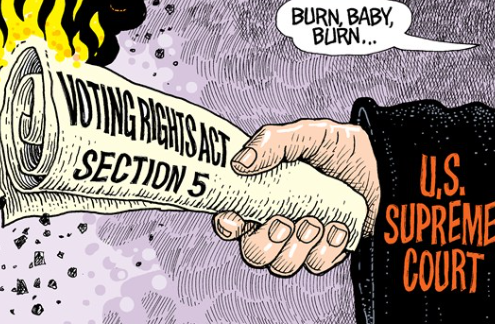
Impact of the VRA + 15th
Attempted to end the disenfranchisement of the black vote [tests, taxes..]
15th called for a “preclearance” for any new voting procedures wishing to be enacted.
Shelby v Holder [2013]
struck down the ‘pre-clearance’ clause of the VRA [5-4 majority]
this allowed states to pass voting limitations like ID requirements, if felons can vote, and registration practices
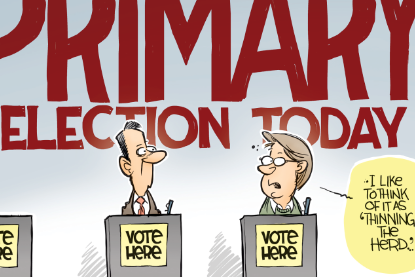
Primary v General Election Styles
primary: candidates expose their viewpoints more specifically to gain traction'
general: pivot to more broad policies to attract the masses
Position v Valence Issues
position: rivals take opposing views
valence: generally accepted ideas [ex: drugs = bad]
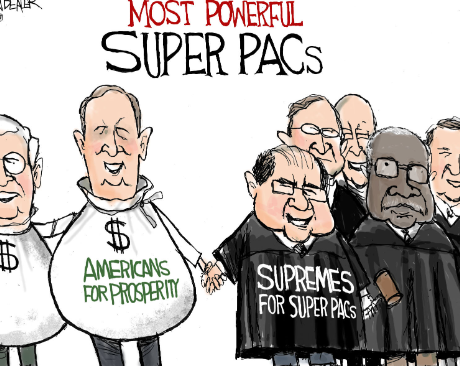
Super PACs
continuity of Citizens United v FEC [2010]
cannot have direct affiliation with specific campaigns, but can utilize issue advocacy on behalf/against a campaign
Must disclose donors + expenditures, no financial limits
Soft v Hard Money
soft: an unaccounted financial contribution that doesn’t go to a specific candidate → flies under the FEC [unlimited amounts]
hard: accounted contributions to disclosed parties, groups, and candidates in limited amounts
![<p>Buckley v Valeo [1976]</p>](https://knowt-user-attachments.s3.amazonaws.com/9c048b7a-a358-44bb-be31-5acb2da9b51d.jpeg)
Buckley v Valeo [1976]
struck down limitations on total contributions + individual spending (billionaires using their own $)
divided issue + express advocacy
issue: isn’t limited [political advertising on broad issues]
express: limited [political advertising that supports an outcome]
BCRA [2002]
effort to combat campaign finance loopholes
capped campaign expenditures
banned soft money
banned electioneering communications near elections
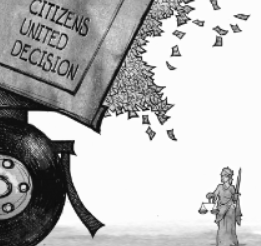
Citizens United v FEC
called into question the ‘electioneering’ clause of BCRA
restrictions on campaign funding = restriction on free speech
corporations are alike to people in the pursuit of 1st amendment protections
dissent: undermine democracy
after: now super PACs can collect money for ‘unaffiliated’ campaigning
527 Groups [BCRA loophole]
nonprofit, issue advocacy, have to publicly disclose donors, and report to the FEC
![<p>501c(4) Groups [BCRA loophole]</p>](https://knowt-user-attachments.s3.amazonaws.com/4fdf548b-b863-4c97-bb4e-4a887df562f1.jpeg)
501c(4) Groups [BCRA loophole]
social welfare group, unlimited monies on electioneering, but politics has to consume less than 50% of their spending, and don’t have to disclose donors.
aka dark money
Strong Groups of Affiliation
african-american, jewish, & hispanic dems
business + southern-white repubulicans
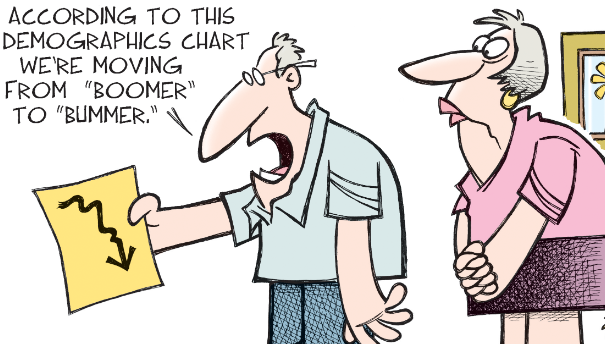
Demographic Characteristics
affects voter turnout
education, race, class, socio-economic status [higher SES = highter political participation]
Electoral College
required process to select president by state electors
all states use winner-take-all [expect for maine + nebraska]
electors → chosen by party leaders/activists
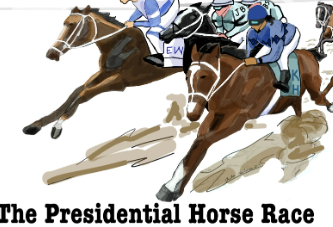
Horse-Race Journalism
emphasizes the drama of an election
doesn’t report the differences on policies
affects the political agenda
Partisan Bias
slanting of news coverage in support of a political party/ideology → causes distrust in the media
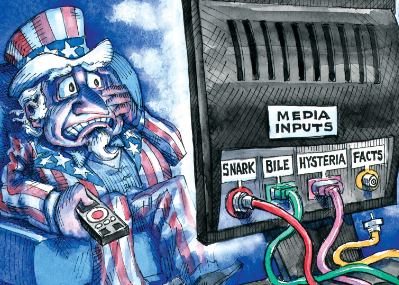
Evolving Media
The 1930s → rely heavily on journalism, soon there would be radio [Communications Act]
The 40-50s → rise of TVs, post-war world, kennedy-nixon debates televised
The 80-2000s → mass media/increase in viewing options, internet boom. Cable is regulated way less
Media Acts
Radio [1927] → established FRC
Communications [1934] → created the FCC (regulates interstate + international communcations)
Telecommunications [1996] → encouraged media consolidation

Roles of Media
gatekeeper: influences the national topics/policy agenda
scorekeeper: keeps track of who’s winning/losing
watchdog: scrutinize people, places, events
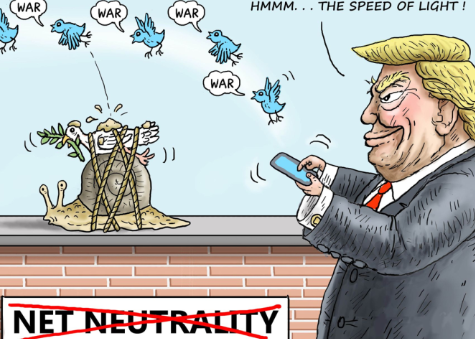
Net Netruality
principle that internet communications from providers are treated equally → obama era